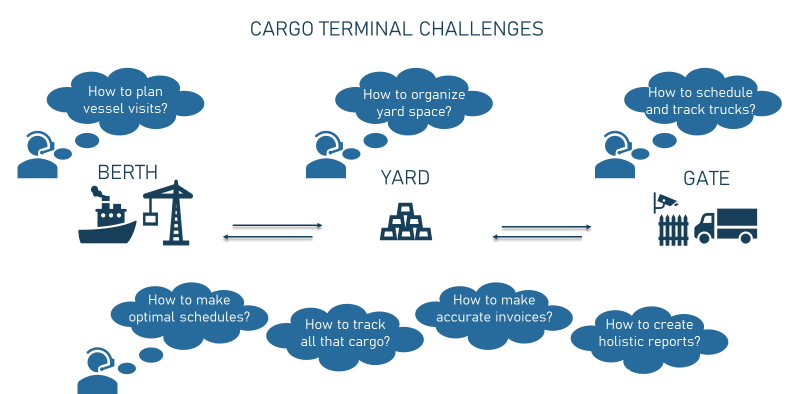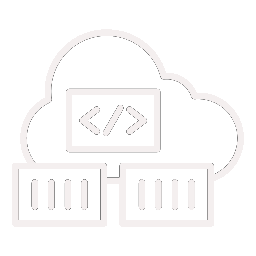Exploring the Revolution in Terminal Operations: The Comprehensive Guide to Cloud Terminal Management Solutions
In the fast-paced world of terminal operations, where efficiency and productivity are paramount, the advent of cloud-based terminal management solutions represents a transformative leap forward. These advanced platforms harness the power of cloud computing, digital terminal operations, and sophisticated analytics to redefine how terminals operate—ushering in an era of streamlined processes, enhanced efficiency, and elevated productivity.
The Evolution of Terminal Operations: Embracing Cloud Technology
The shift towards cloud-based solutions marks a significant evolution from traditional, on-premise terminal operating systems (TOS). Traditional systems, often constrained by physical hardware limitations and complex on-site infrastructure, are making way for more agile, scalable, and cost-effective cloud alternatives. These cloud solutions offer terminals the flexibility to adapt to changing operational demands, expand their capabilities, and improve service delivery without the burden of extensive physical IT infrastructures.
Key Features and Capabilities of Cloud Terminal Management Solutions
- Real-Time Operational Insights: Through the integration of real-time yard tracking and terminal operations analytics, cloud solutions provide immediate access to critical operational data. This empowers terminal operators to make informed, quick decisions, enhancing the agility and responsiveness of terminal operations.
- Seamless Interdepartmental Collaboration: The cloud terminal management framework facilitates seamless communication and collaboration among various teams and stakeholders. Integrated communication tools embedded within the platform enable efficient information exchange, fostering a cohesive operational environment.
- Optimal Resource Allocation: Intelligent algorithms and predictive analytics lie at the core of cloud solutions, driving yard capacity optimization and resource planning. These capabilities ensure the strategic allocation of assets, minimizing idle times and enhancing overall operational efficiency.
- Automated Process Enhancement: The automated yard planning and workflow automation features eliminate the need for manual intervention in repetitive tasks. This not only improves operational efficiency but also allows staff to focus on more strategic, value-adding activities.
- Unmatched Scalability and Adaptability: Cloud-based solutions are inherently scalable, providing terminals the ability to easily adjust their operational capacity in response to business growth or fluctuating demands without significant infrastructural changes. Cloud-based gate control and terminal resource planning offer unparalleled flexibility, ensuring that terminals remain agile in the dynamic logistics landscape.
- Robust Data Security Measures: Data integrity and security are paramount in terminal operations. Cloud solutions implement stringent data security measures, including encryption protocols and access controls, safeguarding sensitive operational data against unauthorized access and cyber threats.
- Comprehensive System Integration: Facilitating TOS system integration and terminal automation software, cloud platforms are designed for compatibility with existing ERP and logistics systems. This ensures seamless data flow and comprehensive visibility across end-to-end terminal processes, enhancing operational transparency and efficiency.
Transformative Benefits: Driving Terminal Operations Forward
Adopting a cloud terminal management solution brings forth a multitude of transformative benefits, directly impacting operational efficiency, customer satisfaction, and cost management:
- Operational Efficiency: Streamlining processes through terminal efficiency software and yard efficiency improvement mechanisms, cloud solutions eradicate bottlenecks and reduce manual inaccuracies, significantly boosting terminal throughput and operational performance.
- Elevated Customer Experience: Enhanced capabilities like online dock scheduling and online container tracking not only improve service delivery but also foster customer satisfaction and loyalty by ensuring faster turnaround times and transparency in container handling.
- Strategic Cost Management: Identifying and leveraging cost-saving opportunities through cloud cargo handling and terminal resource planning features, terminals can optimize resource allocation, curtail unnecessary expenses, and bolster profitability.
- Informed Decision-Making: Advanced cloud-based logistics and terminal operations analytics arm decision-makers with actionable insights, facilitating strategic planning and continuous operational refinement based on data-driven intelligence.
- Compliance and Trust: Ensuring adherence to industry regulations and standards, cloud port management and cloud-based equipment tracking fortify compliance and foster trust among stakeholders, underscoring the terminal’s commitment to operational excellence and security.
Elevating Terminal Efficiency with Cloud-Based Innovations
In the dynamic realm of logistics, mastering yard space management and deploying efficient container placement strategies are pivotal. The advent of cloud-based terminal operating systems has set a new benchmark in optimizing yard capacity, offering an unparalleled blend of real-time yard tracking and automated yard planning. These advancements have not only propelled yard efficiency improvement but also laid the groundwork for adopting dynamic yard allocation techniques and comprehensive yard operations analytics.
Transforming Terminal Operations with Cloud Technology
Cloud Terminal Management emerges as a beacon of innovation, reshaping how terminals orchestrate operations. This section delves into the core features that underscore the transformative impact of cloud solutions on terminals.
Real-Time Data and Enhanced Collaboration
Harnessing cloud-based logistics and terminal operations analytics, these solutions ensure terminal yard utilization and cargo yard optimization are always a step ahead. Through real-time container management and strategic yard space planning, stakeholders gain immediate insights, fostering proactive decision-making and seamless collaboration across the board.
Resource Optimization and Workflow Automation
Automated yard planning and container yard layout strategies streamline the allocation of resources. Yard workflow automation and container stacking policies significantly reduce manual tasks, spotlighting the efficiency of cloud-based gate control and terminal workflow optimization.
Scalability, Security, and Integration
Cloud terminal management systems shine with their inherent scalability, offering terminal resource planning and cloud cargo handling with ease. Data security, underpinned by terminal security management protocols, ensures the integrity of operations, while terminal management system integration enhances end-to-end operational visibility.
The Strategic Edge: Benefits of Cloud-Based Management
The implementation of a cloud terminal management solution ushers in a new era of terminal efficiency, improved customer service, and cost optimization. The data-driven insights afforded by terminal operations analytics and cloud-based logistics empower terminals to navigate the complexities of modern logistics with precision and agility.
Analytical Insights and Regulatory Compliance
Terminal operations analytics play a pivotal role in sculpting cloud-based logistics solutions, ensuring terminals not only keep pace with but also anticipate the evolving dynamics of global trade. Moreover, adherence to regulatory compliance solidifies trust among stakeholders, fortifying the terminal’s commitment to excellence and security.
Conclusion: Navigating the Future with Cloud Solutions
The journey towards terminal cloud-based management delineates a future where efficiency, adaptability, and strategic foresight define terminal operations. The cloud terminal management solution, with its profound capabilities in real-time data analysis, resource optimization, and workflow automation, stands as a testament to the transformative potential of cloud technology in the logistics sector.
Table 1: Enhancing Operational Insight and Security
Traditional vs. Cloud-Based Terminal Operations
| Traditional Approaches | Cloud-Based Enhancements |
|---|---|
| Manual data analysis | Real-time container management with instant data insights |
| Siloed operational planning | Integrated strategic yard space planning, fostering seamless collaboration |
| Reactive resource allocation | Proactive resource optimization, powered by predictive analytics |
| Basic security protocols | Advanced terminal security management, ensuring data integrity |
Leveraging Advanced Technology for Comprehensive Terminal Management
Cloud-based solutions stand at the confluence of innovation, offering not just an upgrade but a complete transformation of terminal operations. Terminal big data management systems and cloud-based equipment tracking extend beyond traditional capabilities, heralding a new era of digital terminal operations.
Key Pillars of Cloud-Based Terminal Management
- Data-Driven Decision Making: Emphasizing the importance of real-time yard tracking and terminal operations analytics, cloud solutions empower terminals with actionable insights for strategic decision-making.
- Optimizing Terminal Efficiency: Through yard capacity optimization and automated yard planning, these solutions significantly enhance terminal throughput and reduce operational redundancies.
- Security and Compliance at the Forefront: With enhanced safety and security measures, cloud-based systems ensure the highest standards of operational integrity and regulatory adherence.
- Future-Proofing Terminal Operations: The adaptability and scalability of cloud solutions prepare terminals for future challenges, enabling them to navigate the logistics landscape with resilience and agility.
In the increasingly complex world of container logistics, adopting a cloud-based terminal operating system is not just an option but a necessity for those aiming to lead in efficiency, security, and operational excellence. By integrating these advanced solutions, terminals can not only meet the demands of today but also anticipate the challenges of tomorrow, ensuring sustained growth and competitiveness in the global marketplace.

